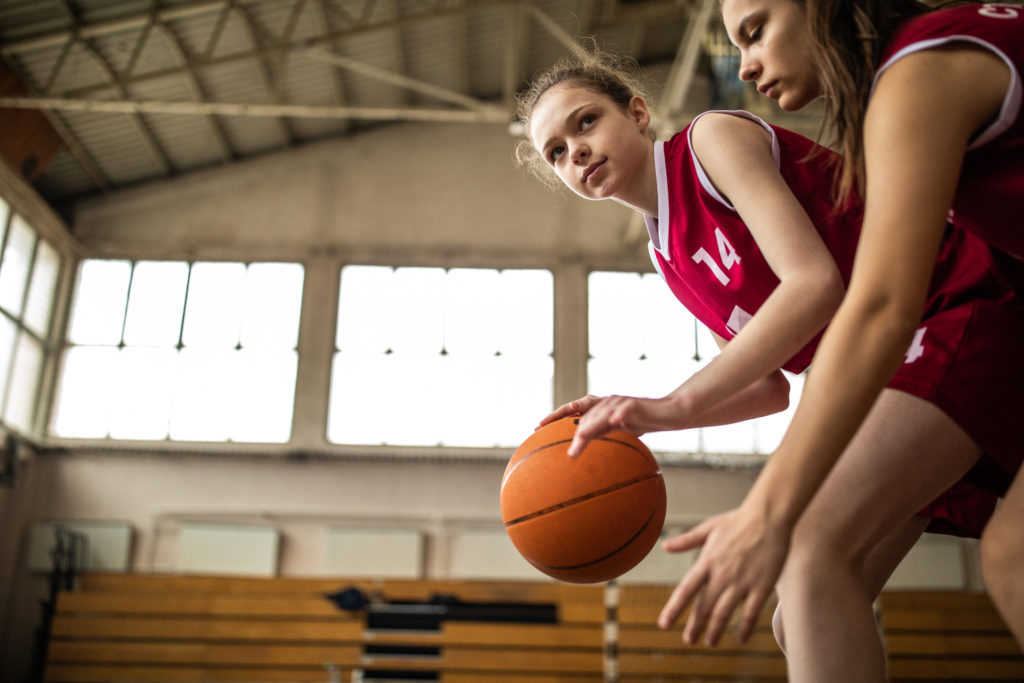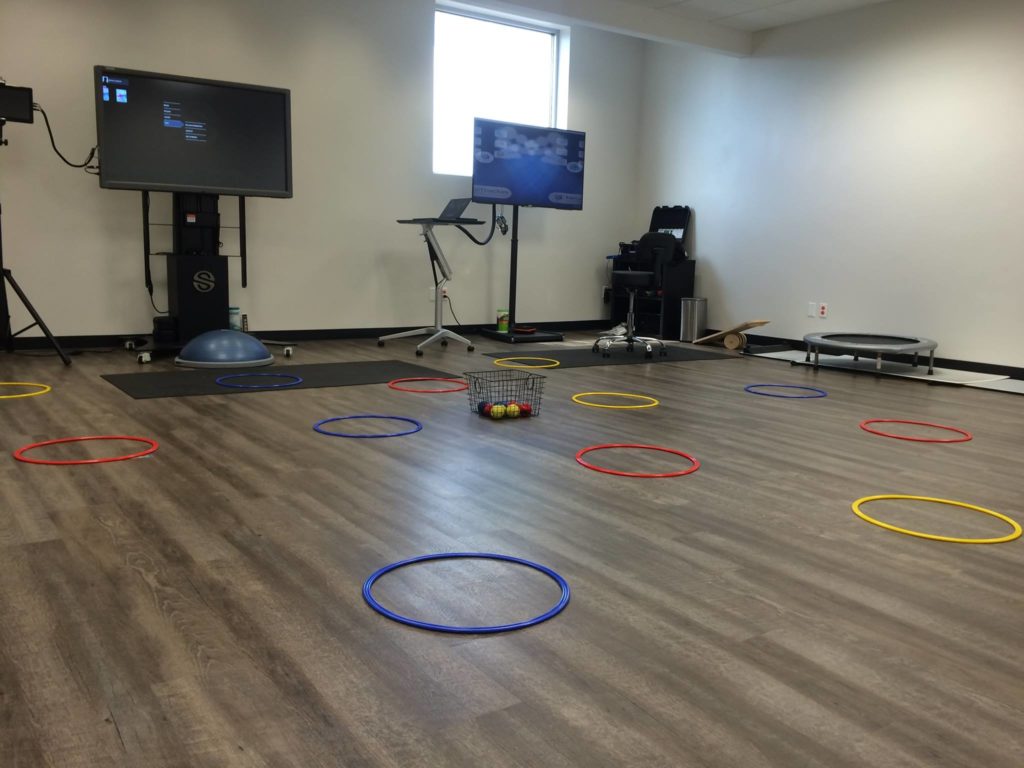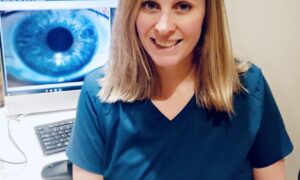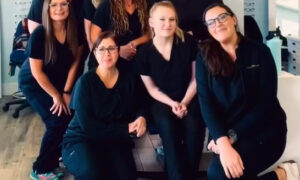By Jennifer L. Stewart, OD

March 4, 2020
Sports vision, which helps patients perform better at athletics, is a growing niche in optometry. Here is how I have made the most of this growth area of optometry, making it a focus of the care I provide.
I have two practices. One is a private practice focused on primary optometric care and the other is a standalone sports vision practice. In addition to having a sports vision practice myself, I consult with other practices on how they, too, can launch sports vision services.
What is Sports Vision?
Sports and performance vision is improving an athlete’s visual and cognitive performance and overall athletic performance. I tell athletes, if I can make you see something faster, make a cognitive decision faster and make a better, faster motor decision, you are going to be a better athlete–no matter the sport or position. We work to improve focus, attention, eye/hand coordination, reaction, anticipation, tracking and decision-making.
There is a continuum of ways to present sports vision in a practice from ignoring it to offering everything possible in sports vision. Some, like me, have a separate facility or space where they provide testing and training for athletes using specific equipment. For others, sports vision may just mean offering sports protective eyewear and unique optical solutions.
I feel that any OD having a conversation with a patient about sports can have a sports and performance vision specialty. We just all may do it differently!

Dr. Stewart’s sports training facility. Dr. Stewart says there is more than way to approach sports vision services. A full-scale training facility is nice to have, but not a necessity.
How Interested Are You Really In Working with Athletes?
The first step for an OD considering sports vision services is to determine if they have a true interest in sports and performance and working with athletes. Like any niche, there is a lot of hard work and time that goes into building it. If a doctor has the passion, they can make it happen.
I work with many ODs and sports professionals who have asked me for help in starting or incorporating sports vision into their practice or facility. There is not a specific type of practice that will be more successful with sports vision than others. I have worked with smaller practices that are using an empty lane, ODs who have opened a separate facility and others who have incorporated their sports vision services into complementary businesses.
Start By Asking Patients About Sport Participation & Hobbies
Asking every patient if they participate in organized sports or hobbies is a great start. I always remind the doctors I consult with that many people don’t consider themselves athletes, but they are. Recreational and weekend athletes also can benefit from sports vision training.
Other Pieces to Explore
In addition, looking at your community is important. Identify the sports that are most popular in the area where you practice. My practice’s sports vision office is located in a hockey facility in southern Connecticut, so hockey is by far our number one sport. Lacrosse is another sport that is extremely popular in our area, so we also made that a focus.
Get Started Making Needed Technology Purchases
I encourage practice owners to write a sports vision “wish list,” and then we work together to figure out a timeline. What equipment do they need to start and can afford? What is our next phase? What is their dream piece of equipment? For some, this can be as simple as adding sports eyewear into their optical and having a conversation with every athlete about the need for protection. For others, it is a state-of-the-art training facility.
Fortunately, there is a range of sports vision products available at different price points, and ways to take inexpensive traditional vision therapy tools and add drills to make them sports specific, at a low cost. Technology such as the Senaptec Sensory Station come at a higher price tag, so this may not be feasible to start (or fit in a small footprint). However, companies such as Senaptec also have other solutions which can make the initial acquisition easier. Identifying a budget and operational costs upfront (including staff) can help an OD figure out the equipment they can afford and profit from.
Get Educated on Sports Vision
The International Sports Vision Association offers a wealth of knowledge both online and in person. Its web site lists sports vision practitioners and features Insights Into Sports Vision, a collection of articles written by team members. This organization also hosts an annual conference full of lectures, workshops, networking and vendors.
The American Optometric Association is also a great resource. The Sports Performance and Vision Advocacy Network has webinars, tools, handouts, protocols and tips on its web site. The AOA Optometry’s Meeting has great lectures on sports and performance vision.
Vision Expo East/West usually have great education as well- join me on the Innovation Stage this year to learn about how to start a Sports and Performance Vision center!
The Vision Council is also a fantastic resource for ODs and staff.
Market Your Services
Identify athletes in your practice and begin having conversations about correction. Every athlete playing a sport should be wearing sports eyewear anytime they walk onto the field or court. Start having this conversation in every exam, and make sure your optical has eyewear that passes the latest safety standards for both frames and lenses (and are independently tested). Get comfortable prescribing for small refractive errors for athletes with contact lenses and protective eyewear.
Start talking to coaches, parents and trainers in your area. Host demos for athletes, parents and coaches in your facility, so they can learn what sports vision is about. Being consistent and patient is key when building a new business, especially one like sports vision that many people may be unfamiliar with.
 Jennifer Stewart, OD, is a partner in Norwalk Eye Care in Norwalk, Conn. She also is founder and COO of Performance 20/20, a sports vision training center in Stamford, Conn. To contact her: jen.stewart@perform2020.com
Jennifer Stewart, OD, is a partner in Norwalk Eye Care in Norwalk, Conn. She also is founder and COO of Performance 20/20, a sports vision training center in Stamford, Conn. To contact her: jen.stewart@perform2020.com



























